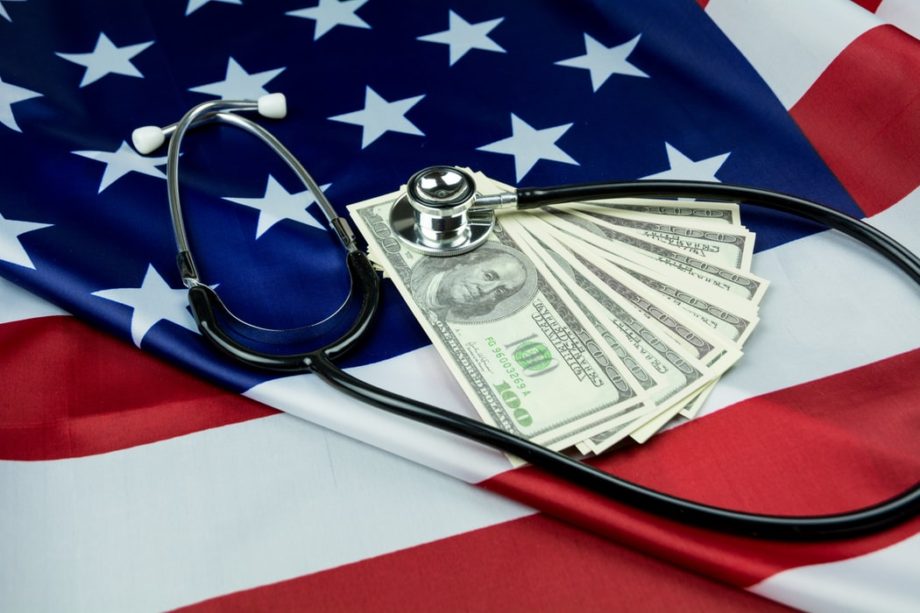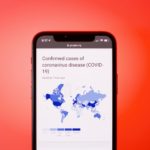
What is health insurance?
While most developed countries have universal health care, meaning that health care treatments, appointments, and medications are affordable or even free, the US is an interesting exception.
While the US is a country known for its technological advances and top tier research in the medical field, health care is expensive and often inaccessible for many citizens.
To avoid paying extremely expensive medical bills, people often have health insurance, which helps cover some of the costs.
Why is health insurance so expensive?

The reason health care is so expensive in this country is mainly because of health care insurance companies.
These private (meaning non-government owned) insurance companies have created a for-profit system.
What’s a premium?
In the US, most health insurance is only available through private insurance companies, and individuals need to pay for this themselves, even if their employer pays for part of it. The payment to private insurance companies is called a “premium.”
The private insurance companies’ main goal is to make money, rather than pay for your health care.
So, while you pay these “premiums” monthly to the private insurance company, only certain treatments, appointments, and medications are covered under their specific insurance plan.
Therefore, while you will be paying premiums to your insurance company to cover some of your medical expenses, not all of them will be covered.
You will need to pay additional expenses if they are not covered by your insurance company, on top of the premiums you already pay.
These additional expenses are “out-of-pocket costs.”
Part of this is due to lack of government regulation, and also partly due to the for-profit system of insurance companies.
What’s a deductible?
Additionally, on top of premiums that you pay, there is also a “deductible.”
Some insurance plans have a deductible, which is a certain amount that you need to spend on medications, treatments, and appointments before the insurance company begins to cover the costs.
For example, let’s say my health insurance plan’s deductible is $3,000.
I am continuing to pay my premiums monthly. I also need to spend $3,000 buying medications and paying for doctor appointments.
In other words, I need to spend $3,000 in out-of-pocket costs.
Once I spend $3,000 for medical care, the health insurance company will begin to cover the cost.
What’s a co-pay?
Along with this, there is also a “co-pay.”
A co-pay is a fixed amount you need to pay for a covered service.
An example of this would be doctor’s appointments. These are typically covered by health insurance companies.
If you have reached your deductible, as in the insurance company will now cover costs, it does not mean they will cover the entirety of the costs.
This is where the “co-pay” comes in.
You’ve reached your deductible, by spending a certain amount of money. But now, you may need to pay a $20 co-pay for a doctor’s appointment.
How to Get Insurance

Now that we understand the basics of health insurance in the US, how do you get health insurance?
Private Insurance Options
Through your Employer
Some employers offer private health insurance as part of their employee benefit package. This is one way you can sign up for health insurance.
Many Americans who work full-time receive health insurance through their employer. The insurance is paid for by the business on behalf of the employees.
Most private health insurance in the US is employment-based. Almost all large employers in the US offer group health insurance to their employees.
For this type of insurance, the employer typically makes a large contribution towards the cost of coverage, and also makes a contribution towards the premium for the employees’ dependents.
The employee pays the remainder of the costs, which is typically a lot less than the employer’s contribution.
Public Insurance Options
Public insurance programs provide the most coverage for seniors (those aged 65 and over) and also low-income children and their families who meet certain eligibility requirements.
The primary two public programs are Medicare, and Medicaid.
Medicare
Medicare is a government social insurance program that provides health insurance to people aged 65 and over, individuals who become permanently disabled, end stage renal disease patients, and people with ALS.
Medicaid
Medicaid can be considered as a social welfare or social protection program, as those who enroll must pass a means test.
This means that you must be able to prove that you cannot afford health care.
The Affordable Care Act (ACA) – Obamacare
The Affordable Care Act (ACA), otherwise known as Obamacare, has helped many Americans receive health care coverage.
If you meet certain qualifications, the government will help pay for your monthly premiums and also for out-of-pocket costs.
Depending on which state you live in, you can sign up during an open enrollment period to be connected with health insurance companies and Obamacare plans.
Along with this, depending on the state, you can enroll in the state’s own health care insurance.







